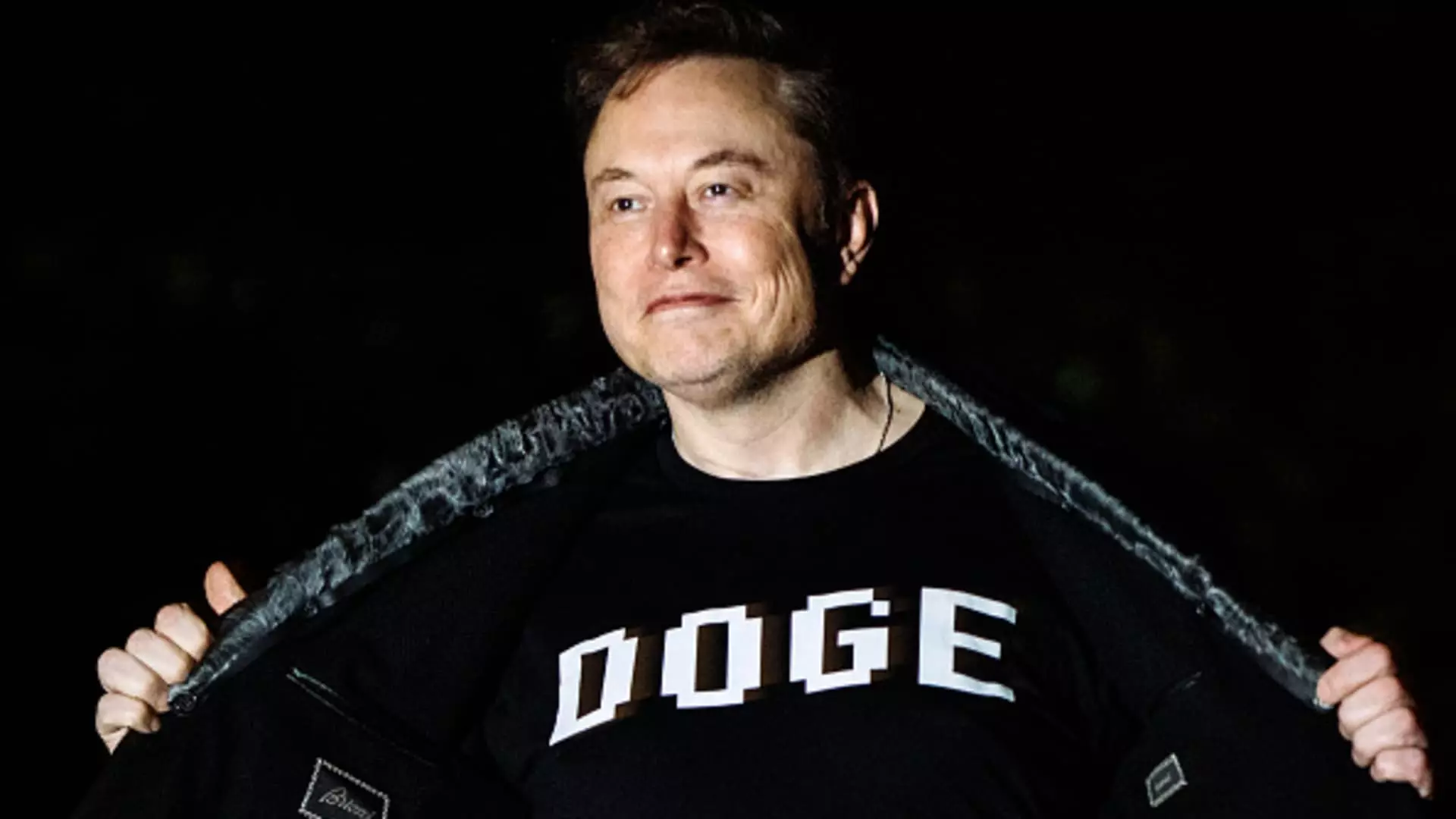The recent surge in Tesla’s share price, following rumors of Elon Musk stepping away from his position within the Department of Government Efficiency, presents a fascinating case study of the intersection between corporate performance and political involvement. Despite a brief uptick, the reality remains bleak for Tesla, as the company’s stock has plunged over 30% year-to-date and suffered its most severe quarterly decline since 2022. The juxtaposition of stock recovery amidst persistent turmoil illuminates the profound effects of external factors—politics in this case—on a corporation’s financial health.
Market Reactions and Investor Sentiment
The stock market’s unpredictable behavior can often be traced to investor sentiment bursts triggered by news cycles. Tesla experienced a moment of optimism, attributed to reports that Musk may pivot back from government affairs to concentrate on the struggling electric vehicle giant. Such speculation, however, fails to address the underlying issues plaguing Tesla, including disappointing delivery numbers and a tarnished brand image. While a 5% rise is noteworthy, it is essential to recognize that it merely represents a flicker of hope in an otherwise ominous landscape.
Critically, the stock’s reaction to news is emblematic of a broader discontent among investors. The insinuation that Musk’s governmental involvement has weighed heavily on Tesla’s performance is not unfounded; many stakeholders see a direct correlation between his political engagements and the company’s stock performance. Weighing the political ramifications starkly against Tesla’s financial metrics leads to a rather disheartening conclusion: every public appearance or political contribution by Musk bears the potential to sway market confidence, often detrimentally.
The Cloud of Political Backlash
Musk’s stature as a prominent figure in the political arena hasn’t rendered him immune to backlash. Reports of protests and boycotts of Tesla products paint a picture of a company grappling with its identity amidst external pressures. Rather than being regarded solely as a trailblazer in the EV industry, Tesla is also at risk of being perceived as a partisan entity, which can severely alienate segments of the consumer base.
Compounding the situation are the implications of Trump’s automotive tariffs on Tesla’s supply chains, particularly those engaging suppliers in hotspots like Mexico and China. The specter of these tariffs looms large over Tesla’s strategic maneuvers, casting a pall of uncertainty over its future. Musk’s candid admission of significant personal financial loss due to these entangled roles reflects not just his plight but also resonates with the concerns of individual investors who find their fortunes intertwined with the whims of political landscapes.
The Consequences of Celebrity Status
In a world where billionaire entrepreneurs assert their influence across political and social spheres, Musk’s high-profile decisions carry weight far beyond conventional corporate governance. His engagement in the electoral process in Wisconsin, alongside substantial financial backing for specific candidates, underscores the blurred lines between corporate strategy and political maneuvering. Such involvement has drawn ire from various activism groups, revealing just how divisive and consequential Musk’s celebrity status can be.
The emergence of New York City Comptroller Brad Lander’s call for legal action against Tesla on behalf of city pension funds is yet another reminder of the potential ramifications of Musk’s government ties. Legal battles can drain not only financial resources but also corporate reputation. Therefore, shareholders must grapple with an unsettling reality: the potential for their investment to be overshadowed by political controversies that are entirely outside the purview of traditional business logic.
While the rise in Tesla’s shares brings momentary respite, it serves primarily to highlight the fragility of its current standing, tethered closely to the tumultuous and unpredictable tides of politics. An introspection into this phenomenon reveals that the intersection of business and politics can either elevate or doom a company, depending on the evolving narratives of public perception and market dynamics.

